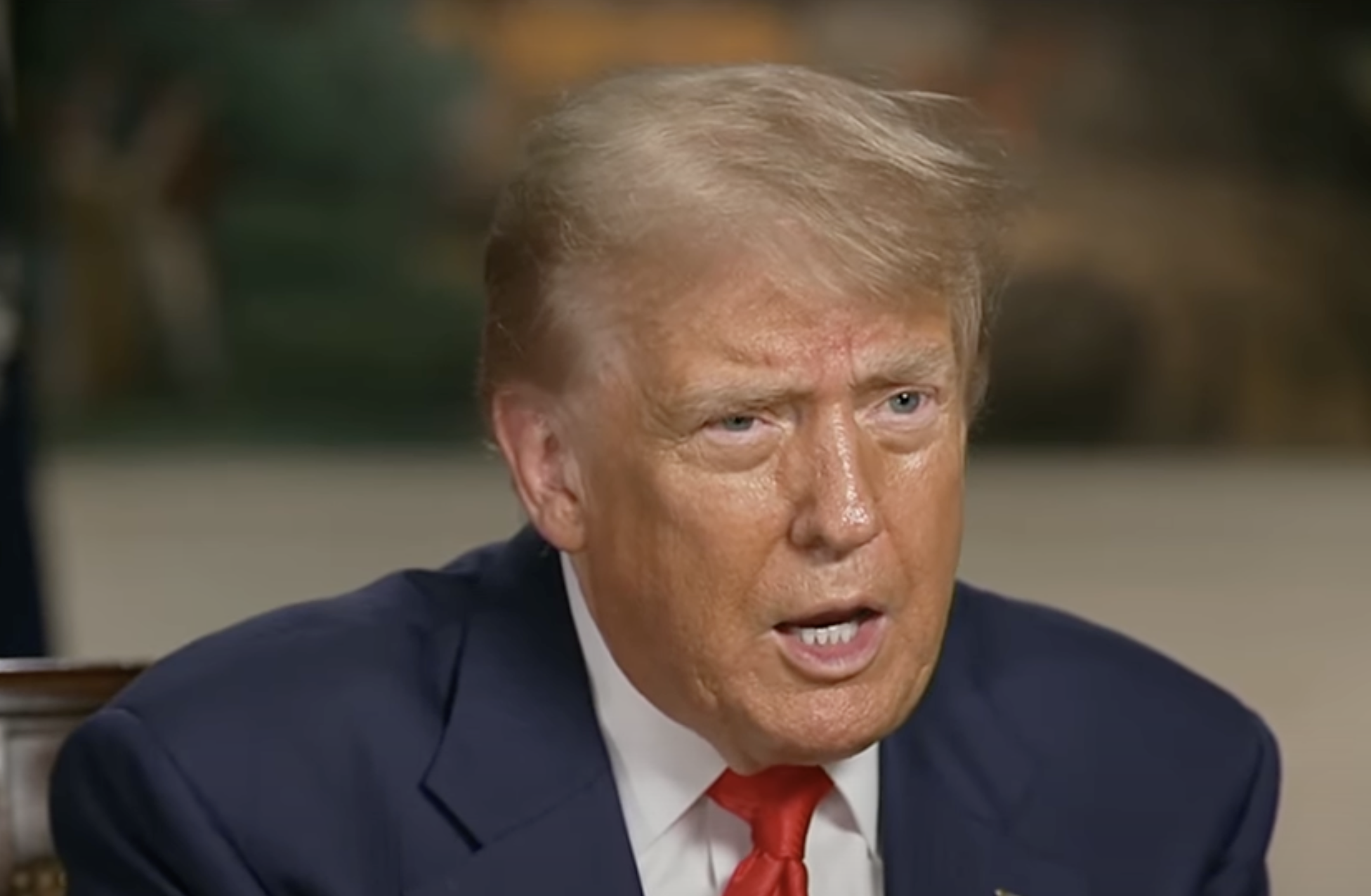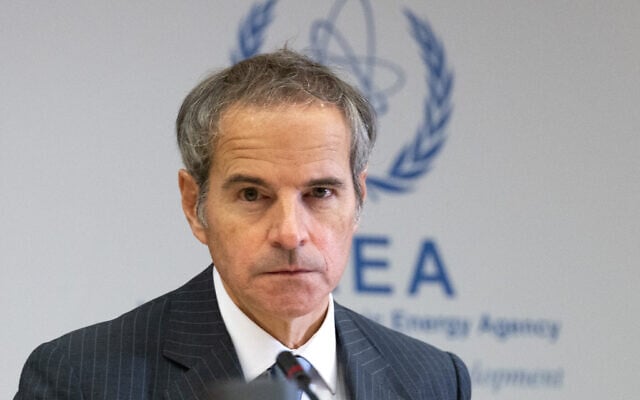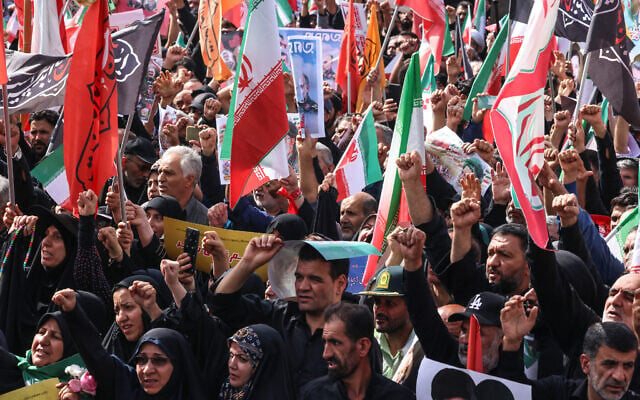



US President Donald Trump said Sunday that Iran’s nuclear program had been “obliterated like nobody’s ever seen before” by Israeli and US strikes this month, reiterating his contention that the Islamic Republic cannot build a nuclear weapon after American bombings of three key nuclear facilities last week.
“That meant the end to their nuclear ambitions, at least for a period of time,” Trump said.
“The bomb went through it like it was butter, like it was absolute butter,” he said of the bunker-buster strike on the underground Fordo facility, buried deep underground. “It’s just thousands of tons of rock in that room right now. The whole place was just destroyed.”
Trump also said more countries would soon join the Abraham Accords, normalizing relations with Israel.
The interview with Fox News’s Maria Bartiromo came amid reports that preliminary intelligence assessments in the wake of the American strikes on Iran have cast doubt on their effectiveness.
The reports have questioned whether the massive bunker-buster bombs dropped by US pilots actually destroyed the underground facilities, and suggested that the enriched uranium stored there — which could be further enriched for weaponization — was moved prior to the attack, potentially even to facilities that the US does not know about.
Trump said those who leaked the information to reporters “should be prosecuted,” and said it would be easy to find out who did, saying: “You tell the reporter ‘national security,’ who gave it? You have to do that. And I suspect we’ll be doing things like that.”
The president insisted that the Iranians did not move highly enriched uranium out of the Fordo site before the attack.
“I think first it was very hard to do. It’s very dangerous to do. It’s very heavy, very, very heavy. It’s a very hard thing to do. Plus, we didn’t give much notice because they didn’t know we were coming until just then,” he said.
Iran was “weeks away” from achieving a nuclear weapon at the time of the strike, Trump said.
Tehran is not about to restart its nuclear program, he argued: “The last thing they want to do right now is think about nuclear. They have to put themselves back into condition and shape.”
Trump’s comments came a day after UN nuclear watchdog chief Rafael Grossi told CBS News that Iran likely will be able to begin to produce enriched uranium again “in a matter of months.”
Grossi said the Natanz, Fordo, and Isfahan sites struck by the US were “destroyed to a significant degree,” but Iran “still has, to some degree, capabilities in terms of treatment, conversion, and enrichment of uranium” there. He also said the International Atomic Energy Agency cannot yet account for the whereabouts of some 900 pounds of highly enriched uranium (400 kilograms) that Iran was known to hold prior to the attacks.
A preliminary intelligence report from the Pentagon last week assessed that the US strikes at the key nuclear facilities at Natanz, Fordo, and Isfahan did not destroy the sites’ underground components and left Iran’s stockpile of enriched uranium largely intact.
In Israel, IDF spokesman Brig. Gen. Effi Defrin said Israel thinks Iran’s nuclear program has been set back years, but that it was “still too early” to tell.
Trump said that as a result of the US and Israeli campaign against Iran, more countries would normalize relations with Israel.
“We have some really great countries in there right now,” Trump said, “and I think we’re going to start loading them up, because Iran was the primary problem.
“I actually thought Iran would… we had a period of time where I thought Iran would join the Abraham Accords along with everybody else,” he said, referring to the agreements brokered during his first term between Israel and several neighboring Arab countries.
Trump’s Mideast envoy Steve Witkoff and Israeli Prime Minister Benjamin Netanyahu have similarly spoken of expanding the accords in recent days, amid reports that the American and Israeli leaders are working together on a major Mideast deal to expand the accords while securing the release of the remaining hostages held by terror groups in Gaza and ending the 20-month-old war there.
Israel and Iran entered into open conflict on June 13, when Israel launched airstrikes targeting Iran’s top military leaders, nuclear scientists, uranium enrichment sites, and ballistic missile program. Israel said the campaign was necessary to prevent the Islamic Republic from realizing its declared plan to destroy the Jewish state. On June 22, the US struck key Iranian nuclear facilities.
Iran retaliated to Israel’s attacks by launching over 500 ballistic missiles and around 1,000 drones at Israel. Iran’s missile attacks killed 28 people and wounded thousands in Israel, according to health officials and hospitals. Missiles hit apartment buildings, a university, and a hospital, causing heavy damage. Iran also fired at a US base in Qatar after the American strikes.


